- Home
- Sarah Woodbury
The Faithless Fool Page 3
The Faithless Fool Read online
Page 3
Gwen didn’t quite roll her eyes at Gareth, but her aversion was plain on her face. Llelo felt bad to be foisting Margaret on his mother. But not bad enough to deal with the noble woman again himself.
His mother knew what he was thinking, as of course she would, and her mouth twitched as she passed him. “Don’t feel guilty, son. I didn’t need to see a body today anyway.” She spoke in Welsh too, for his ears alone, and then she smoothly transitioned back to French as she approached Margaret, who was now sobbing in the arms of the king. “Perhaps it would be best if you came with me? I’m sure a cup of wine wouldn’t go amiss.”
Margaret agreed, to the relief of the men in the room, even if they’d maintained their concerned façades up until now. Once Gwen successfully guided Margaret down the nave to the door, there was a general sigh of relief around the room. Everyone became more matter-of-fact, eased by the familiar stoicism of the men around them. It was an attitude Gwen had run up against time and again as she’d taken part in investigations. Many men wanted to treat all women like fragile flowers and became patronizing in their presence. Sadly, Margaret’s hysterics had done nothing to challenge the attitude or expectations of these men.
The women’s departure did give Llelo the opportunity to finally approach the body alongside the king. The church was arranged similarly to every other church Llelo had ever entered, though it was larger than most, as befitted the grandeur of Carlisle Castle in general. Twice as long as it was wide, the nave was divided two-thirds of the way down its length by a dais upon which the altar, the lectern, and the priest’s chair rested.
Parishioners were confined to the western two-thirds of the church, while the eastern portion was the domain of churchmen. This area included choir stalls and another altar on the eastern wall, immediately beneath a glorious stained-glass window, designed to let the light of the morning sun flood the church.
“This is not what I expected.” The king came to a halt within view of the body but not crowding Gareth, who was crouched in front of it.
And it was a good description. It was still a body, but it barely looked human, other than being dressed in military gear: a padded coat such as a common soldier might wear and that once might have been blue, a wide belt at the waist upon which a sheathed knife still rested, and high boots. The face was desiccated and also waxy, with a yellowish sheen to it, while the hair was half gone, like a dog with mange. The man had been dead for a long time. It would be up to his father—and thus Llelo as well—to determine how long.
“My apologies, my lord.” Dai’s eyes were wide, since it appeared he was getting a good look at the body for the first time too. “I-I-I myself didn’t realize—”
Gareth put out a hand. “You came running, as you needed to. Though I suppose, given how long ago this fellow died, walking would have made no difference.”
Chapter Five
Day One
Gareth
Gareth suddenly realized he’d taken charge. Turning to the king, he said, “My lord, excuse my impertinence.”
“Have you been impertinent? If so, I hadn’t noticed.”
Gareth swallowed, giving himself time to consider how to explain what he was apologizing for. “I have some experience with death, my lord, as I suppose you know, but I have no desire to usurp the role of your principal investigator. I would be happy to assist him if he desires my help—or to bow out entirely.”
“A dead man has appeared in my church!” The king gestured to the body. “I need to know how and why as quickly as possible.”
“I did not come here to investigate an unexplained body.”
King David let out a little laugh. “I am sure that there are men within my court who might put themselves forward in that regard, but I am also well aware that I have no investigator with your experience or expertise.”
“Be that as it may, I am also not a member of your court—”
Prince Henry cut in. “You weren’t a member of my uncle’s court, nor mine either. And yet I summoned you, and you came.”
“I did.” Gareth bent his head in the prince’s direction.
“I certainly have no regrets on that score.” Henry was being completely serious.
“By all means,” the king made another motion towards the body, “carry on.”
Gareth still wavered. “I would, of course, be happy to give my opinion, but if you change your mind, please don’t hesitate to replace me.”
“Perhaps I wasn’t entirely clear.” King David now spoke with a tinge of exasperation in his voice. “Unexplained death is rare enough in my experience that few have ever encountered it, much less an unexplained body.” Then he laughed outright at the disbelieving looks directed at him by everyone else in the room, none of whom was a Scotsman. “Don’t get me wrong! A Scot is as hotheaded as the next man—more so!—but that is all the more reason few go about their business in the dark. They certainly don’t leave months- or years-old bodies in churches! When a Scotsman murders another man, he does it openly and with a hot head.”
“As you wish, my lord.” Gareth gave way, even as he remained skeptical of the king’s assertion. More likely, Scots were getting away with murder because the king had nobody qualified to investigate. Still, Gareth had to admit that this particular situation was unprecedented in his experience, even if it wasn’t the first desiccated body he’d seen. “Can you tell us what you know, Llelo?”
Llelo gave a little jerk at being addressed so suddenly, but immediately rose to the occasion, clasping his hands behind his back and speaking in a clear voice that didn’t tremble at all. “Lord Hamelin and I arrived at the church door just as the woman was about to call for help. She told me she’d come to pray, as she usually does at this hour, and then noticed the body. I was unable to learn any more from her than that.”
“Her name is Margaret Carr,” King David said. “She is wife to one of Hugh de Morville’s men, James Carr. They are in my court at Morville’s behest. You may have noted him in the hall just now.”
“We discussed him earlier.” Prince Henry’s ebullience of before was gone, replaced by a mature solemnity. “Margaret is right that he would not have added to the scene. He is quicker with his tongue and his opinions than perhaps is currently needed.”
King David didn’t question Henry’s not-very-complimentary assessment, unlike Hamelin’s earlier in the hall. Instead, he gave a low grunt that might even have been of agreement. Henry was not Hamelin, and if Henry was going to be a good king, or even a great one, a clear-eyed perspective on every one of his underlings was called for. “Can you tell how long he’s been dead?”
For that, Gareth would have to get closer, and everyone seemed happy to leave him to it, since it had apparently become his job. By now, the reek of dirt and decay was pronounced throughout the nave. The only reason Gareth hadn’t suggested opening the front door and letting in some air was because someone walking in the bailey might wonder what was happening inside and seek to satisfy his curiosity. The last thing they needed were residents of Carlisle Castle wandering into the church before they’d had a chance to move the body.
Gareth made a gesture, not meant to be dismissive so much as clarifying. “If you’ll excuse my reticence, my lord, I’d prefer not to draw any definitive conclusions as yet for fear of biasing the investigation before we’ve even started. I can tell you, however, that from the condition of the body, he died more than a month ago, maybe as many as three or four, was buried, and has been recently unearthed.”
“So ... not years?” Prince Henry asked.
“I wouldn’t say so.”
“How can you be sure?” King David said. “It looks to me as if he could have been dead a decade, as Henry just suggested.”
“If you don’t mind my asking, are you sure you really want to know? The explanation is quite detailed, and a little grim.”
“Please.” King David sounded curious more than anything. He would have seen death often, of course. And truly, the situation was curious. Gareth
had offered to step aside, but his cursory examination of the scene had even him wanting to know more. Really, if he was honest, which he invariably tried to be at all times, he’d started investigating death all those years ago out of curiosity and a strong sense of rightness that would not let him be. In the intervening years, little, at least in that regard, had changed.
So he gestured to the corpse’s face. “Do you see the waxy substance that coats him?”
“Yes.” That was from the king.
“It forms when a body decomposes in a warm, moist environment, such as would have been found these last months in this region of the world, particularly if the burial was hasty and kept him within a few feet of the surface of the earth. The very fact of being buried slows decomposition and prevents certain types of insects from getting at the body. If Carlisle’s weather was similar to what we experienced in Gwynedd, where we have had an excessively wet and warm spring, I would not be surprised to see him in this state after three months.”
“It did rain a great deal, even if it hasn’t rained as much recently,” the king agreed. “In fact, if we saw the sun even once in a week, we felt ourselves blessed.”
“I don’t know why the body decays this way nor the physical process by which it happens, but I believe it is a result of oils in the body coming to the surface and congealing, somehow, in response to continual soaking. The effect can occur as early as three weeks after death, but it happens more commonly closer to three months. Initially, as with this body, the oils are yellow and soft. Eventually, they will turn white and brittle.
“We are lucky, really, that it happened at all, because it has preserved the form of the face such that someone who knew him might be able to recognize him. If he died of an injury, such as a stab wound or a beating, that might be preserved as well.” Gareth looked back at the king. “I’m afraid I can’t say anything more about the circumstances of his death until I get him to the laying-out room where I can inspect him fully. Before that can happen, I need to examine his surroundings and, as you indicated, determine if he was buried close by.”
“He had to have been,” Henry said. “The guards surely would have noticed someone bringing a dead body through the front gate!”
“Not if he was buried under a pile of hay,” Gareth said gently.
“Or let in through the postern gate.” King David was looking thoughtful.
Gareth nodded. “As you say, my lord. It is too early to judge anything as yet.”
King David gave something of a scoff. “You know quite a bit already.”
Gareth merely smiled politely. What he didn’t tell the king was that this knowledge came from a mix of personal experience, since he’d spent far too much time over the years with dead bodies— mostly animals of late, thankfully—and conversations with anyone who knew anything at all about death and the natural process of decay.
“I’m thinking he could have been buried in our own churchyard,” Prince Henry said. “He might even have a gravestone.”
“Our churchyard.” King David gazed at the prince before swinging around to Gareth. “You did say, unearthed?” His expression indicated extreme offense at the idea.
“I did, and the adjacent graveyard is the first place we will look, I assure you. But, in that case, we would have a very different investigation on our hands.”
“Different ... how?” King David said.
“If he was buried legitimately, then likely he wasn’t murdered—” Gareth was forced to break off his explanation as two men strode into the church, one dressed in a military tunic showing King David’s colors and the other in the robes of a nobleman. Both wore intent expressions, which immediately smoothed to something resembling concern at the sight of the king and prince standing in the middle of the nave.
The nobleman, whom Gareth recognized now as Lord Carr, the man who’d been speaking earlier to Hamelin in the hall, hurried up to the king. “My lord, I am concerned about my wife. Is she here? She mentioned that she was going to the church, and now I hear—” He stopped, his hand to his mouth, having spied the man in the chair.
The second man had noticed the body by now too, and he swallowed hard. “Pardon, my king, for our intrusion. Your steward said that there was trouble here, but he didn’t say what it was.” This newcomer had a voice that resonated well, and from the way he was dressed, in full mail and with a sword at his waist, he was a knight—and likely a high-ranking one, given the confidence with which he addressed the king.
King David was still looking at Lord Carr. “She was here, James. She is in good hands with Lady Gwen, Lord Gareth’s wife.”
Gareth had been taken aback by the arrival of Lord Carr, who seemed as ineffectual as Hamelin had implied, but Douglas seemed cut from a sturdier cloth. “May I inquire as to your name, sir?”
“Douglas MacGregor.” His eyes were still on the body.
King David flicked out a hand. “Lord Douglas is one of the commanders of my forces, most recently in Worcester. Douglas, this is Lord Gareth of Gwynedd.”
Douglas finally appeared to come to himself and wrenched his eyes away from the body. Turning to Gareth, he bent his head. “I am honored, sir. I was unaware you were with the king and apologize again for my intrusion. I have only just returned from Worcester and have not heard any news but this.”
Earlier in the spring, Empress Maud had taken the city of Worcester from King Stephen. Since then, her forces had held off Stephen’s men, who’d fortified two castles in the vicinity in response. This was the first mention Gareth had heard that King David had sent his own soldiers to bolster the garrison there. Worcester was truly far out of the king’s range, being a full two hundred miles south of Carlisle and a mere thirty miles north of Gloucester, the former seat of the empress’s deceased brother, Robert. Robert’s son William held the west of England for Maud now. If he couldn’t muster enough men to hold Worcester without David’s forces, then it was no wonder Gwynedd’s men were needed, and Henry had sought this alliance.
“You did not offend.” The king motioned towards the body. “You might as well have a look at him since you’re here.”
“Of course, my lord.” Douglas immediately squared his shoulders and looked intently at the corpse, his eyes moving over the body. “His coat and armband identify him as your man, my king.”
“I noticed that,” King David said. “It was my thought he was a member of the garrison here at Carlisle.”
Gareth was somewhat embarrassed that he hadn’t noticed the armband as of yet, filthy as it was, not to mention loose around the sleeve of the dead man’s desiccated arm. It was something of a miracle that it hadn’t fallen off, but he could believe that oils, age, time, and whatever else had been in the ground with the body, had permanently affixed the band to the sleeve of the man’s coat.
“Is anyone missing from the garrison?” Gareth asked.
“Yes and no.” Douglas hesitated before clarifying his cryptic remark, adding reluctantly, “We did lose a man as we left Carlisle, though at the time we didn’t think he’d died. Three months ago, as we began our march south to Worcester, one of our soldiers failed to appear as commissioned.”
“I was not told,” King David said.
“My lord, it is not so unusual an occurrence, and I haven’t thought about him in months.” Douglas waggled his head in apology, or perhaps impatience, now looking at Gareth as he explained further. “I arrived back in Carlisle only this afternoon, having been gone all spring.” Then he turned to Prince Henry. “I apologize for missing your knighting ceremony. I needed to speak to the families of the men we lost in Worcester before they heard about the losses from someone else.”
It was a noble task, and Gareth was beginning to hope Douglas really might be helpful going forward. “Would it be wrong to assume it would be common knowledge among the local people that this man was missing?” He asked in a mild tone, not to be interpreted as a judgment on Douglas’s inability to keep track of his men. Gareth had served in an
army, and Douglas was right that desertion, though warranting harsh penalties at times, was common nonetheless.
“To the contrary, it would not. The company’s commander thought little of his absence initially, since he was a local boy. At first we assumed he would be among those we collected directly from his village as we marched through it. He had a mother and betrothed there. But then he wasn’t there either.”
“Nobody looked for him?” Gareth said. “Neither his mother nor his betrothed?”
“Not that they said, and none of his companions remarked upon his absence either, at least to their captain, until we were well away from Carlisle. Apparently he wasn’t much missed, being dumb as a post and hardly capable of carrying out the simplest orders.” Douglas put out a hasty hand. “This is from his captain. I myself didn’t hear of his desertion until days later, at which point we’d lost two more the same way.” He shrugged. “It happens. Not all men, especially when they are young, are built for war, and some do not discover this fact until they’re already committed.”
“I would ask this man’s name,” Gareth said.
Douglas blinked, perhaps not realizing he hadn’t yet given it. Gareth himself had only just realized it too. “If this is the man I fear him to be, he was called Aelred.”
The name was very Saxon. “So he was English, not Scottish?”
“His father was English. Because his mother is still alive and Scottish, I always thought of him as a local boy, despite his name.”
“Was his family one of those you spoke to today?”
“No.” He paused, looking thoughtful. “Since he never joined us, as I said, I had no cause to think he’d died.”
“Can you tell by looking that this body is that of Aelred?”
Douglas leaned in closer, his nose wrinkling as he concentrated—or maybe that was just in response to the smell. “He might be the right height. The uniform is right. The hair is the right color, what’s left of it.” Douglas shook his head. “I’m sorry. I can’t say for certain.”
His mother knew what he was thinking, as of course she would, and her mouth twitched as she passed him. “Don’t feel guilty, son. I didn’t need to see a body today anyway.” She spoke in Welsh too, for his ears alone, and then she smoothly transitioned back to French as she approached Margaret, who was now sobbing in the arms of the king. “Perhaps it would be best if you came with me? I’m sure a cup of wine wouldn’t go amiss.”
Margaret agreed, to the relief of the men in the room, even if they’d maintained their concerned façades up until now. Once Gwen successfully guided Margaret down the nave to the door, there was a general sigh of relief around the room. Everyone became more matter-of-fact, eased by the familiar stoicism of the men around them. It was an attitude Gwen had run up against time and again as she’d taken part in investigations. Many men wanted to treat all women like fragile flowers and became patronizing in their presence. Sadly, Margaret’s hysterics had done nothing to challenge the attitude or expectations of these men.
The women’s departure did give Llelo the opportunity to finally approach the body alongside the king. The church was arranged similarly to every other church Llelo had ever entered, though it was larger than most, as befitted the grandeur of Carlisle Castle in general. Twice as long as it was wide, the nave was divided two-thirds of the way down its length by a dais upon which the altar, the lectern, and the priest’s chair rested.
Parishioners were confined to the western two-thirds of the church, while the eastern portion was the domain of churchmen. This area included choir stalls and another altar on the eastern wall, immediately beneath a glorious stained-glass window, designed to let the light of the morning sun flood the church.
“This is not what I expected.” The king came to a halt within view of the body but not crowding Gareth, who was crouched in front of it.
And it was a good description. It was still a body, but it barely looked human, other than being dressed in military gear: a padded coat such as a common soldier might wear and that once might have been blue, a wide belt at the waist upon which a sheathed knife still rested, and high boots. The face was desiccated and also waxy, with a yellowish sheen to it, while the hair was half gone, like a dog with mange. The man had been dead for a long time. It would be up to his father—and thus Llelo as well—to determine how long.
“My apologies, my lord.” Dai’s eyes were wide, since it appeared he was getting a good look at the body for the first time too. “I-I-I myself didn’t realize—”
Gareth put out a hand. “You came running, as you needed to. Though I suppose, given how long ago this fellow died, walking would have made no difference.”
Chapter Five
Day One
Gareth
Gareth suddenly realized he’d taken charge. Turning to the king, he said, “My lord, excuse my impertinence.”
“Have you been impertinent? If so, I hadn’t noticed.”
Gareth swallowed, giving himself time to consider how to explain what he was apologizing for. “I have some experience with death, my lord, as I suppose you know, but I have no desire to usurp the role of your principal investigator. I would be happy to assist him if he desires my help—or to bow out entirely.”
“A dead man has appeared in my church!” The king gestured to the body. “I need to know how and why as quickly as possible.”
“I did not come here to investigate an unexplained body.”
King David let out a little laugh. “I am sure that there are men within my court who might put themselves forward in that regard, but I am also well aware that I have no investigator with your experience or expertise.”
“Be that as it may, I am also not a member of your court—”
Prince Henry cut in. “You weren’t a member of my uncle’s court, nor mine either. And yet I summoned you, and you came.”
“I did.” Gareth bent his head in the prince’s direction.
“I certainly have no regrets on that score.” Henry was being completely serious.
“By all means,” the king made another motion towards the body, “carry on.”
Gareth still wavered. “I would, of course, be happy to give my opinion, but if you change your mind, please don’t hesitate to replace me.”
“Perhaps I wasn’t entirely clear.” King David now spoke with a tinge of exasperation in his voice. “Unexplained death is rare enough in my experience that few have ever encountered it, much less an unexplained body.” Then he laughed outright at the disbelieving looks directed at him by everyone else in the room, none of whom was a Scotsman. “Don’t get me wrong! A Scot is as hotheaded as the next man—more so!—but that is all the more reason few go about their business in the dark. They certainly don’t leave months- or years-old bodies in churches! When a Scotsman murders another man, he does it openly and with a hot head.”
“As you wish, my lord.” Gareth gave way, even as he remained skeptical of the king’s assertion. More likely, Scots were getting away with murder because the king had nobody qualified to investigate. Still, Gareth had to admit that this particular situation was unprecedented in his experience, even if it wasn’t the first desiccated body he’d seen. “Can you tell us what you know, Llelo?”
Llelo gave a little jerk at being addressed so suddenly, but immediately rose to the occasion, clasping his hands behind his back and speaking in a clear voice that didn’t tremble at all. “Lord Hamelin and I arrived at the church door just as the woman was about to call for help. She told me she’d come to pray, as she usually does at this hour, and then noticed the body. I was unable to learn any more from her than that.”
“Her name is Margaret Carr,” King David said. “She is wife to one of Hugh de Morville’s men, James Carr. They are in my court at Morville’s behest. You may have noted him in the hall just now.”
“We discussed him earlier.” Prince Henry’s ebullience of before was gone, replaced by a mature solemnity. “Margaret is right that he would not have added to the scene. He is quicker with his tongue and his opinions than perhaps is currently needed.”
King David didn’t question Henry’s not-very-complimentary assessment, unlike Hamelin’s earlier in the hall. Instead, he gave a low grunt that might even have been of agreement. Henry was not Hamelin, and if Henry was going to be a good king, or even a great one, a clear-eyed perspective on every one of his underlings was called for. “Can you tell how long he’s been dead?”
For that, Gareth would have to get closer, and everyone seemed happy to leave him to it, since it had apparently become his job. By now, the reek of dirt and decay was pronounced throughout the nave. The only reason Gareth hadn’t suggested opening the front door and letting in some air was because someone walking in the bailey might wonder what was happening inside and seek to satisfy his curiosity. The last thing they needed were residents of Carlisle Castle wandering into the church before they’d had a chance to move the body.
Gareth made a gesture, not meant to be dismissive so much as clarifying. “If you’ll excuse my reticence, my lord, I’d prefer not to draw any definitive conclusions as yet for fear of biasing the investigation before we’ve even started. I can tell you, however, that from the condition of the body, he died more than a month ago, maybe as many as three or four, was buried, and has been recently unearthed.”
“So ... not years?” Prince Henry asked.
“I wouldn’t say so.”
“How can you be sure?” King David said. “It looks to me as if he could have been dead a decade, as Henry just suggested.”
“If you don’t mind my asking, are you sure you really want to know? The explanation is quite detailed, and a little grim.”
“Please.” King David sounded curious more than anything. He would have seen death often, of course. And truly, the situation was curious. Gareth
had offered to step aside, but his cursory examination of the scene had even him wanting to know more. Really, if he was honest, which he invariably tried to be at all times, he’d started investigating death all those years ago out of curiosity and a strong sense of rightness that would not let him be. In the intervening years, little, at least in that regard, had changed.
So he gestured to the corpse’s face. “Do you see the waxy substance that coats him?”
“Yes.” That was from the king.
“It forms when a body decomposes in a warm, moist environment, such as would have been found these last months in this region of the world, particularly if the burial was hasty and kept him within a few feet of the surface of the earth. The very fact of being buried slows decomposition and prevents certain types of insects from getting at the body. If Carlisle’s weather was similar to what we experienced in Gwynedd, where we have had an excessively wet and warm spring, I would not be surprised to see him in this state after three months.”
“It did rain a great deal, even if it hasn’t rained as much recently,” the king agreed. “In fact, if we saw the sun even once in a week, we felt ourselves blessed.”
“I don’t know why the body decays this way nor the physical process by which it happens, but I believe it is a result of oils in the body coming to the surface and congealing, somehow, in response to continual soaking. The effect can occur as early as three weeks after death, but it happens more commonly closer to three months. Initially, as with this body, the oils are yellow and soft. Eventually, they will turn white and brittle.
“We are lucky, really, that it happened at all, because it has preserved the form of the face such that someone who knew him might be able to recognize him. If he died of an injury, such as a stab wound or a beating, that might be preserved as well.” Gareth looked back at the king. “I’m afraid I can’t say anything more about the circumstances of his death until I get him to the laying-out room where I can inspect him fully. Before that can happen, I need to examine his surroundings and, as you indicated, determine if he was buried close by.”
“He had to have been,” Henry said. “The guards surely would have noticed someone bringing a dead body through the front gate!”
“Not if he was buried under a pile of hay,” Gareth said gently.
“Or let in through the postern gate.” King David was looking thoughtful.
Gareth nodded. “As you say, my lord. It is too early to judge anything as yet.”
King David gave something of a scoff. “You know quite a bit already.”
Gareth merely smiled politely. What he didn’t tell the king was that this knowledge came from a mix of personal experience, since he’d spent far too much time over the years with dead bodies— mostly animals of late, thankfully—and conversations with anyone who knew anything at all about death and the natural process of decay.
“I’m thinking he could have been buried in our own churchyard,” Prince Henry said. “He might even have a gravestone.”
“Our churchyard.” King David gazed at the prince before swinging around to Gareth. “You did say, unearthed?” His expression indicated extreme offense at the idea.
“I did, and the adjacent graveyard is the first place we will look, I assure you. But, in that case, we would have a very different investigation on our hands.”
“Different ... how?” King David said.
“If he was buried legitimately, then likely he wasn’t murdered—” Gareth was forced to break off his explanation as two men strode into the church, one dressed in a military tunic showing King David’s colors and the other in the robes of a nobleman. Both wore intent expressions, which immediately smoothed to something resembling concern at the sight of the king and prince standing in the middle of the nave.
The nobleman, whom Gareth recognized now as Lord Carr, the man who’d been speaking earlier to Hamelin in the hall, hurried up to the king. “My lord, I am concerned about my wife. Is she here? She mentioned that she was going to the church, and now I hear—” He stopped, his hand to his mouth, having spied the man in the chair.
The second man had noticed the body by now too, and he swallowed hard. “Pardon, my king, for our intrusion. Your steward said that there was trouble here, but he didn’t say what it was.” This newcomer had a voice that resonated well, and from the way he was dressed, in full mail and with a sword at his waist, he was a knight—and likely a high-ranking one, given the confidence with which he addressed the king.
King David was still looking at Lord Carr. “She was here, James. She is in good hands with Lady Gwen, Lord Gareth’s wife.”
Gareth had been taken aback by the arrival of Lord Carr, who seemed as ineffectual as Hamelin had implied, but Douglas seemed cut from a sturdier cloth. “May I inquire as to your name, sir?”
“Douglas MacGregor.” His eyes were still on the body.
King David flicked out a hand. “Lord Douglas is one of the commanders of my forces, most recently in Worcester. Douglas, this is Lord Gareth of Gwynedd.”
Douglas finally appeared to come to himself and wrenched his eyes away from the body. Turning to Gareth, he bent his head. “I am honored, sir. I was unaware you were with the king and apologize again for my intrusion. I have only just returned from Worcester and have not heard any news but this.”
Earlier in the spring, Empress Maud had taken the city of Worcester from King Stephen. Since then, her forces had held off Stephen’s men, who’d fortified two castles in the vicinity in response. This was the first mention Gareth had heard that King David had sent his own soldiers to bolster the garrison there. Worcester was truly far out of the king’s range, being a full two hundred miles south of Carlisle and a mere thirty miles north of Gloucester, the former seat of the empress’s deceased brother, Robert. Robert’s son William held the west of England for Maud now. If he couldn’t muster enough men to hold Worcester without David’s forces, then it was no wonder Gwynedd’s men were needed, and Henry had sought this alliance.
“You did not offend.” The king motioned towards the body. “You might as well have a look at him since you’re here.”
“Of course, my lord.” Douglas immediately squared his shoulders and looked intently at the corpse, his eyes moving over the body. “His coat and armband identify him as your man, my king.”
“I noticed that,” King David said. “It was my thought he was a member of the garrison here at Carlisle.”
Gareth was somewhat embarrassed that he hadn’t noticed the armband as of yet, filthy as it was, not to mention loose around the sleeve of the dead man’s desiccated arm. It was something of a miracle that it hadn’t fallen off, but he could believe that oils, age, time, and whatever else had been in the ground with the body, had permanently affixed the band to the sleeve of the man’s coat.
“Is anyone missing from the garrison?” Gareth asked.
“Yes and no.” Douglas hesitated before clarifying his cryptic remark, adding reluctantly, “We did lose a man as we left Carlisle, though at the time we didn’t think he’d died. Three months ago, as we began our march south to Worcester, one of our soldiers failed to appear as commissioned.”
“I was not told,” King David said.
“My lord, it is not so unusual an occurrence, and I haven’t thought about him in months.” Douglas waggled his head in apology, or perhaps impatience, now looking at Gareth as he explained further. “I arrived back in Carlisle only this afternoon, having been gone all spring.” Then he turned to Prince Henry. “I apologize for missing your knighting ceremony. I needed to speak to the families of the men we lost in Worcester before they heard about the losses from someone else.”
It was a noble task, and Gareth was beginning to hope Douglas really might be helpful going forward. “Would it be wrong to assume it would be common knowledge among the local people that this man was missing?” He asked in a mild tone, not to be interpreted as a judgment on Douglas’s inability to keep track of his men. Gareth had served in an
army, and Douglas was right that desertion, though warranting harsh penalties at times, was common nonetheless.
“To the contrary, it would not. The company’s commander thought little of his absence initially, since he was a local boy. At first we assumed he would be among those we collected directly from his village as we marched through it. He had a mother and betrothed there. But then he wasn’t there either.”
“Nobody looked for him?” Gareth said. “Neither his mother nor his betrothed?”
“Not that they said, and none of his companions remarked upon his absence either, at least to their captain, until we were well away from Carlisle. Apparently he wasn’t much missed, being dumb as a post and hardly capable of carrying out the simplest orders.” Douglas put out a hasty hand. “This is from his captain. I myself didn’t hear of his desertion until days later, at which point we’d lost two more the same way.” He shrugged. “It happens. Not all men, especially when they are young, are built for war, and some do not discover this fact until they’re already committed.”
“I would ask this man’s name,” Gareth said.
Douglas blinked, perhaps not realizing he hadn’t yet given it. Gareth himself had only just realized it too. “If this is the man I fear him to be, he was called Aelred.”
The name was very Saxon. “So he was English, not Scottish?”
“His father was English. Because his mother is still alive and Scottish, I always thought of him as a local boy, despite his name.”
“Was his family one of those you spoke to today?”
“No.” He paused, looking thoughtful. “Since he never joined us, as I said, I had no cause to think he’d died.”
“Can you tell by looking that this body is that of Aelred?”
Douglas leaned in closer, his nose wrinkling as he concentrated—or maybe that was just in response to the smell. “He might be the right height. The uniform is right. The hair is the right color, what’s left of it.” Douglas shook his head. “I’m sorry. I can’t say for certain.”

 The Good Knight
The Good Knight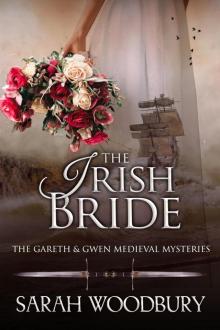 The Irish Bride
The Irish Bride Refuge in Time
Refuge in Time Masters of Time
Masters of Time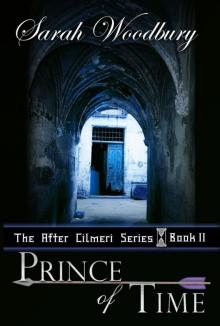 Prince of Time (Book Two in the After Cilmeri series)
Prince of Time (Book Two in the After Cilmeri series) The Favored Son
The Favored Son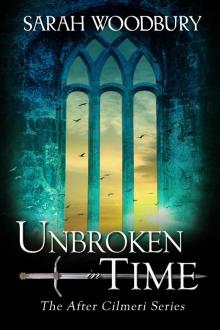 Unbroken in Time
Unbroken in Time![[The Lion of Wales 01.0] Cold My Heart Read online](http://i1.bookreadfree.com/i/03/22/the_lion_of_wales_01_0_cold_my_heart_preview.jpg) [The Lion of Wales 01.0] Cold My Heart
[The Lion of Wales 01.0] Cold My Heart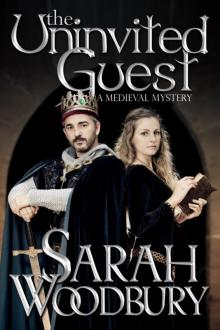 The Uninvited Guest
The Uninvited Guest The Pendragon's Blade (The Last Pendragon Saga Book 2)
The Pendragon's Blade (The Last Pendragon Saga Book 2)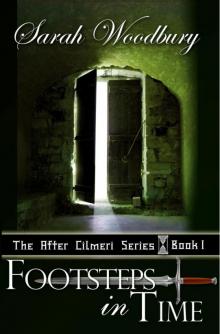 Footsteps in Time
Footsteps in Time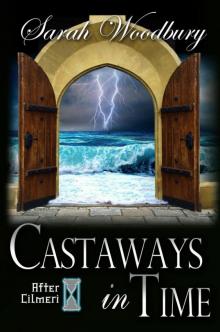 Castaways in Time (The After Cilmeri Series)
Castaways in Time (The After Cilmeri Series) Winds of Time
Winds of Time Of Men and Dragons (The Lion of Wales Book 3)
Of Men and Dragons (The Lion of Wales Book 3) Champions of Time
Champions of Time The Pendragon's Challenge (The Last Pendragon Saga Book 7)
The Pendragon's Challenge (The Last Pendragon Saga Book 7) Rise of the Pendragon (The Last Pendragon Saga Book 6)
Rise of the Pendragon (The Last Pendragon Saga Book 6) The Worthy Soldier
The Worthy Soldier The Last Pendragon (The Last Pendragon Saga Book 1)
The Last Pendragon (The Last Pendragon Saga Book 1) The Fallen Princess
The Fallen Princess The Pendragon's Champions (The Last Pendragon Saga Book 5)
The Pendragon's Champions (The Last Pendragon Saga Book 5)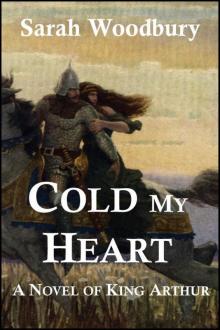 Cold My Heart: A Novel of King Arthur
Cold My Heart: A Novel of King Arthur A Long Cloud (The Lion of Wales Book 4)
A Long Cloud (The Lion of Wales Book 4) Frost Against the Hilt (The Lion of Wales Book 5)
Frost Against the Hilt (The Lion of Wales Book 5) Daughter of Time: A Time Travel Romance
Daughter of Time: A Time Travel Romance Outpost in Time
Outpost in Time Shades of Time kobo
Shades of Time kobo The Pendragon's Quest (The Last Pendragon Saga Book 4)
The Pendragon's Quest (The Last Pendragon Saga Book 4)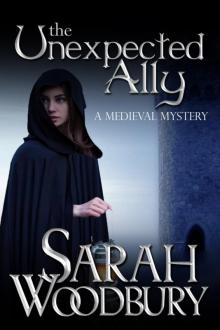 The Unexpected Ally
The Unexpected Ally Crossroads in Time (The After Cilmeri Series)
Crossroads in Time (The After Cilmeri Series)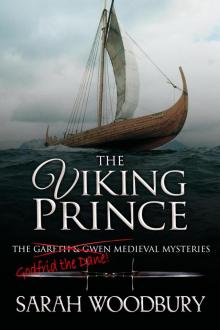 The Viking Prince
The Viking Prince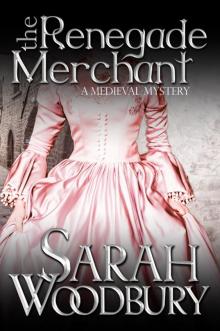 The Renegade Merchant
The Renegade Merchant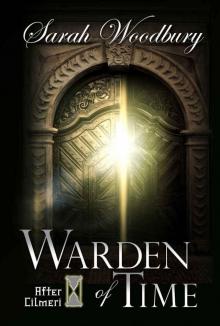 Warden of Time (The After Cilmeri Series Book 8)
Warden of Time (The After Cilmeri Series Book 8)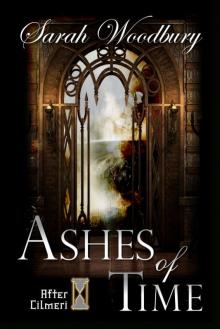 Ashes of Time (The After Cilmeri Series)
Ashes of Time (The After Cilmeri Series)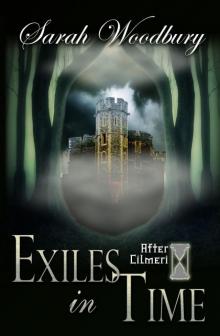 Exiles in Time (The After Cilmeri Series)
Exiles in Time (The After Cilmeri Series)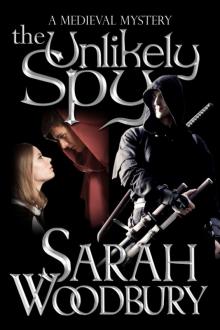 The Unlikely Spy
The Unlikely Spy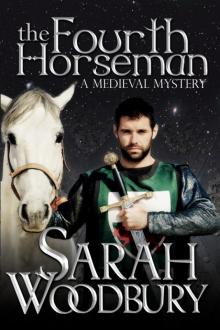 The Fourth Horseman
The Fourth Horseman The Oaken Door (The Lion of Wales Book 2)
The Oaken Door (The Lion of Wales Book 2) Song of the Pendragon (The Last Pendragon Saga Book 3)
Song of the Pendragon (The Last Pendragon Saga Book 3) Champions of Time (The After Cilmeri Series, #13)
Champions of Time (The After Cilmeri Series, #13)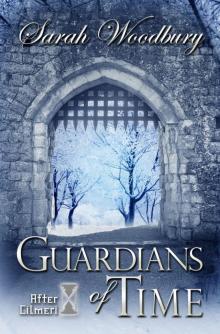 Guardians of Time
Guardians of Time The Bard's Daughter (A Gareth and Gwen Medieval Mystery)
The Bard's Daughter (A Gareth and Gwen Medieval Mystery)